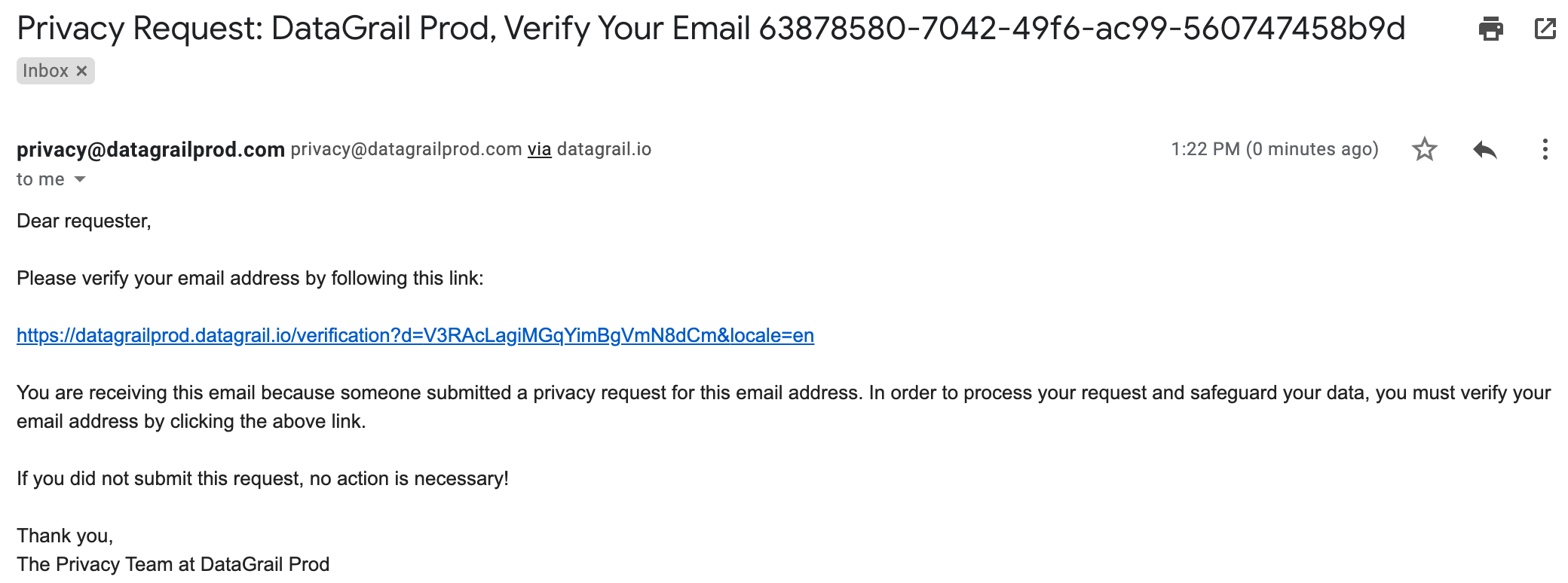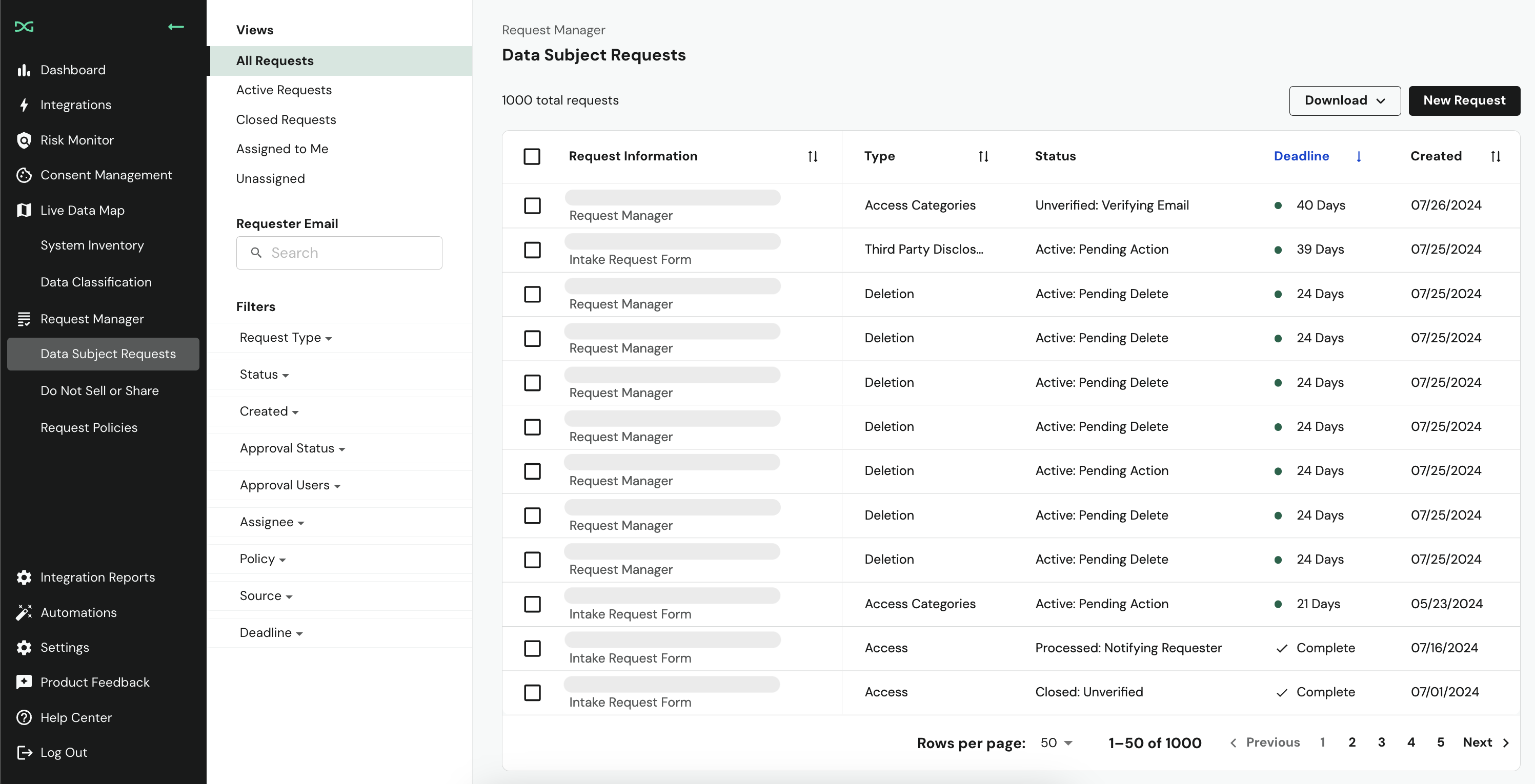The Data Subject Request Intake Form
Processing privacy requests is a very manual process that can be prone to human error and increase compliance risk. DataGrail's Privacy Intake process helps customers reduce hours spent managing DSARs through automation.
Many locations, including California and the EU, allow individuals to request what information a company maintains about them and request that those records be deleted.
How it Works
Intake Form
DataGrail Customers can host a DataGrail-powered Privacy Request Form on their privacy domain. This is separate from the Do Not Sell Form. Based on the IP address of the user accessing the form, those specific policy requirements will automatically update and be shown on the form (learn more about this in the article "Verifying Data Subject Location").

Additionally, hCAPTCHA is included on forms as an additional measure to prevent against spam and fraud in the privacy request process.
Authorized Agent Workflow: CCPA regulations (§ 999.326) stipulate companies must provide a way for authorized agents to make requests on behalf of data subjects. For this to be available on the form, a customer must have Smart Verification enabled.
The text and fields in this form are configurable. Learn more about the standard configuration options here
Email Verification
Once a data subject submits a privacy request, they will be asked to confirm their email address. This is referred to as Email Verification and is a safeguard against spam and requests illegitimately made on behalf of others.

The verification email and all other email messages sent to data subjects are customizable with Email Templates.
Viewing Privacy Requests
Once the request is submitted, the request details will be logged to DataGrail. You can visit the Request Queue to see the current list of all privacy requests.

From here, Request Manager users can click into each request and begin processing!
Disclaimer: The information contained in this message does not constitute as legal advice. We would advise seeking professional counsel before acting on or interpreting any material.